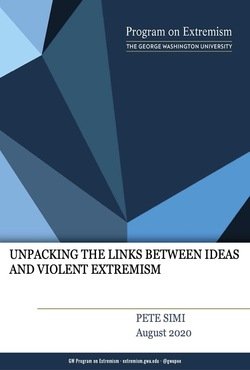By Williams, Heather J.; Mcculloch, Caitlin
From the document: "This Perspective serves as a preliminary examination of the many roles and the complex intersection of Truth Decay and national security; in it, we examine how eroding confidence in facts and fact-finding institutions can affect U.S. national security. In addition to framing these intersections, we examine whether Truth Decay's role in national security has changed over time and the impact of the changing definition of 'national security.' [...] This work is intended to serve multiple purposes. The first is understanding: to better explain the broad impacts of Truth Decay on American national security. The second is to frame future research: both to highlight areas where gaps exist and future research could be most fruitful and to provide a framework for how that work would connect to the overarching strategic question. The third is response: to suggest what actors are best positioned to address Truth Decay in national security and potential mitigating initiatives. It is our hope that this work will demonstrate the importance of improving our understanding of Truth Decay in national security and combating the national security vulnerabilities it creates."
RAND Corporation. 2023. 43p.



